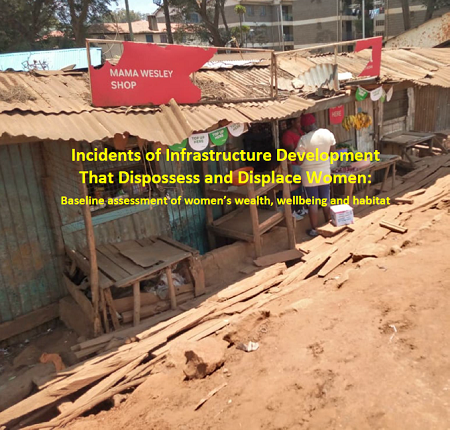HIC-HLRN has just published the results of a study on the impacts of infrastructure development that dispossesses and displace women in Kenya. The report is a baseline assessment of women’s wealth, wellbeing and habitat values at stake.
This is the product of a collaborative project of Mazingira Institute, Pamoja Trust and HIC-HLRN on the potential losses (wealth, wellbeing and habitat) occasioned to a sample of households potentially affected by evictions due to the development of the planned A–104 road construction. It is a gender-sensitive study, focusing specifically on women within the households selected. These were purposively selected and analysed in the categories of households of single, married, separated and widowed women. The study, conducted in March 2019, includes an assessment of impacts due to any previous instances of displacement for any reason.
The study applies HIC-HLRN’s quantification framework, first tried in Kenya in the aftermath of post-election violence of the year 2008, this time to infrastructure development-related displacements. This framework examines human rights deprivation in relation to wealth, wellbeing and habitat, arising from such displacement. By assessing the impact, the model lays the ground for ascertaining redress mechanisms. It also lays the groundwork for further investigation of the impact of customary practices on women’s housing and land rights.














